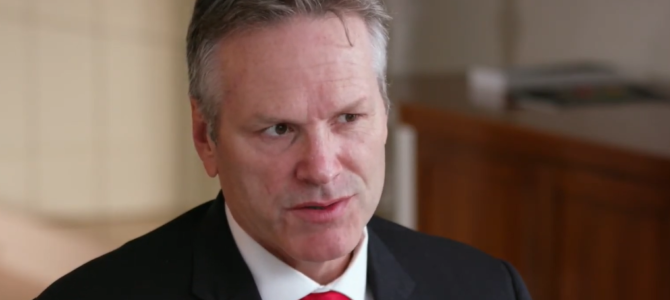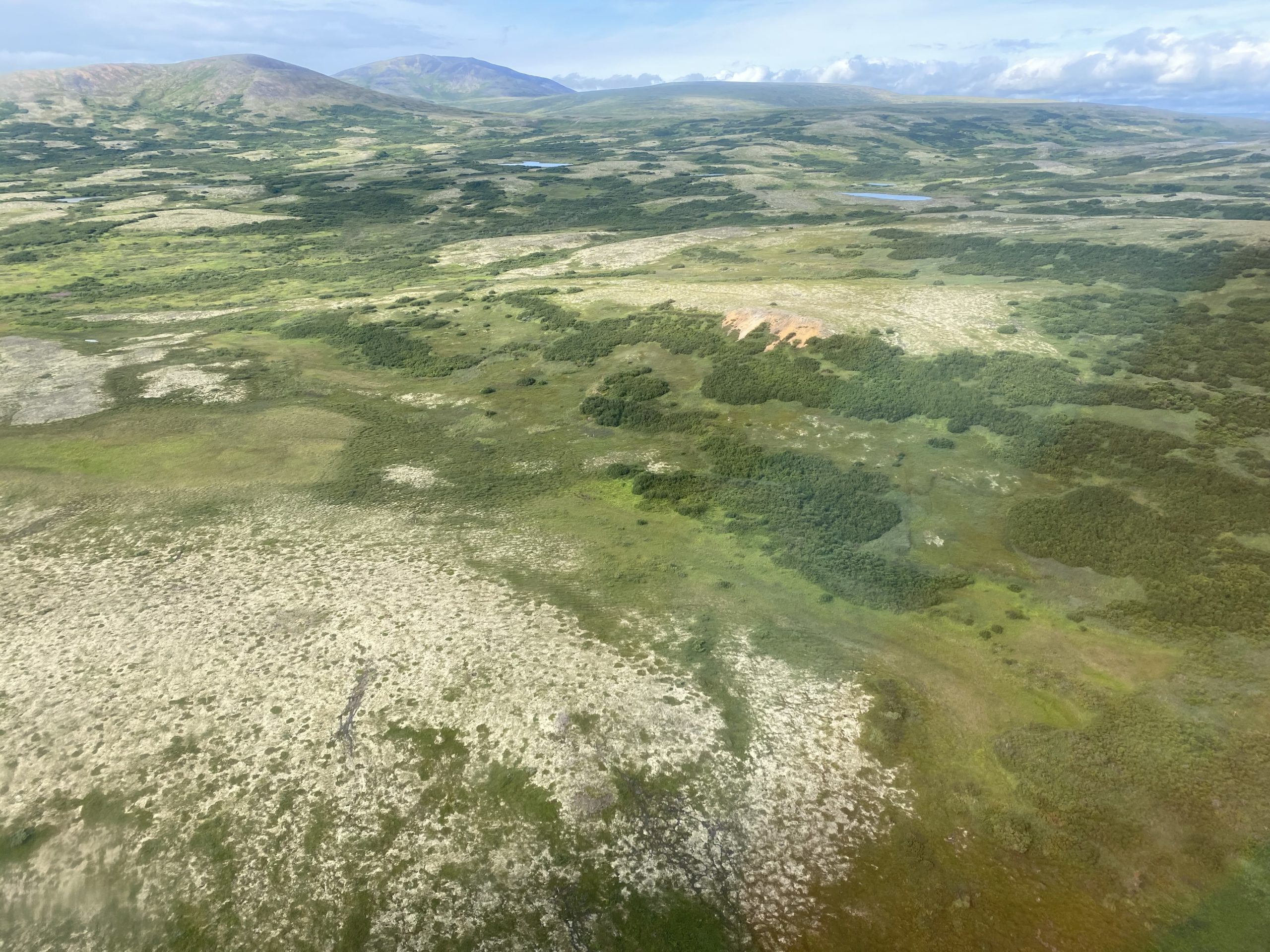
ANCHORAGE, Alaska — Gov. Mike Dunleavy is frustrated.
In just its first eight months, the Biden administration has halted logging plans in the state’s southeast Tongass National Forest, barred federal land releases to Native veterans, and shut down oil and gas operations on the North Slope of the Arctic National Wildlife Refuge (ANWR) as it shops overseas for fuel. All without consulting with the governor who runs the largest state in the nation by land mass, home to 60 percent of federal lands.
“We’ve had no contact with Joe Biden, no matter how many times we’ve asked,” the Republican governor told The Federalist in an interview Wednesday. He added his office was even left in the dark on the U.S.-China summit that occurred in Anchorage five months ago. “We heard that in the press.”
The Biden administration has aggressively crusaded to bar development in the country’s greatest untapped resource in the name of environmental stewardship, as if in an effort to transform the state into a national park saved for the wealthy who can afford a visit.
“If we were able to do what we wanted to do, we’d be one of the richest states by far,” Dunleavy said about the Biden administration intervening at seemingly every opportunity to inhibit development for rural communities across the state plagued by poverty, addiction, and third-world diseases. Isolated residents in southwest Alaska’s King Cove can’t even build a life-saving 12-mile road to an all-weather airport. The Biden administration has stopped that too, pending a visit from Interior Secretary Deb Haaland next month.
Since statehood, Alaska has served as a primary battleground for elite leftist environmentalists to impede development driven by local interests to grow their economy. Progressives will often incite and then exploit native tribes to cloak their crusade against development under the moral righteousness of environmental justice.
In the Arctic National Wildlife Refuge, for example, the left has co-opted the Gwich’in people to stop oil and gas extraction on the North Slope, despite the tribe living hundreds of miles south from the proposed area for drilling. The only tribe living within the boundaries of 1002 area, comprising 1.6 million of the 19.6 million-acre refuge, are the Iñupiat, who have spent years lobbying for the projects to move forward. The Gwich’in only became opposed to Arctic drilling after learning in the 1980s their own lands lack lucrative reserves.
Dunleavy cited a controversial project nearly 100 miles upstream from Bristol Bay as among the most egregious interventions of the federal government allowing residents of the lower 48 to get in the way of Alaskan opportunities to develop their own state. In 2012, National Geographic characterized the battle over what’s known as Pebble Mine the “Gettysburg of natural resource conflicts.”
Nearly 20 miles from the impoverished community of Iliamna, a town with so little infrastructure there are no roads from it to Anchorage, prospectors have discovered a vast deposit of copper, gold, porphyry, and molybdenum, vital minerals for high-tech gear and electric cars. Northern Dynasty Minerals Ltd., the company behind the mine, estimates deposits underneath the surface are worth between $500 billion and $1 trillion.

The company has been fighting a 17-year regulatory battle to put the mine online. The latest development was in November, when the U.S. Army Corps of Engineers blocked a permit for its proposed discharge plan.
The ruling handed down was vague, claiming the mine’s plan was “contrary to public interest,” with potential harm to marine life 100 miles away in Bristol Bay. The pristine ecosystem is home to the world’s largest wild salmon run valued at more than $2 billion by the McKinley Research Group in April, an Anchorage-based group opposed to the mine.
In 2019 the Environmental Protection Agency (EPA) said it would reconsider the project put on pause after it released a new mine plan in 2017. The agency under President Barack Obama had previously blocked the project in 2014, citing “irreversible harm” to the salmon downstream.
The new plan’s Environmental Impact Statement (EIS), completed under the process outlined by the National Environmental Policy Act (NEPA) and released last summer, concluded the site’s plan posed little risk to the salmon of Bristol Bay.
“Past and present actions that have or are currently affecting commercial and recreational fisheries in the analysis are minimal,” regulators wrote, highlighting that so far, there has been little harm to the surrounding ecosystem. “The No Action Alternative would not contribute to cumulative effects on commercial and recreational fishing.”
In other words, the new plan presents no catastrophic risk to the salmon of Bristol Bay, according to the third-party assessment. The Army Corps of Engineers agreed in March to reconsider its November denial.
While not a product of the Biden administration, the federal impediment, Dunleavy said, stems from the same broader pattern of lower 48 intrusion into Alaskan opportunities for development. In 2018, the Seattle City Council voted to demand the federal government block Pebble Mine.
“This is coming from the place that destroyed the Columbia River with 24 dams,” Dunleavy said.
Meanwhile, the people of Iliamna are desperate for Pebble Mine to come online in the village where unemployment is high and the price of diapers exceeds $70 a box.

There’s a “trillion-dollar opportunity right next to the poorest people in America and we can’t do anything about it,” Dunleavy told The Federalist. “That place is dying out there in Iliamna. They’re drowning in opportunity [but] they’re denied that opportunity.”
Trump was better, Dunleavy added, calling the governor frequently to ask how the federal government could move out of the way.
“We went from having a president who was all about creating opportunity to an administration that is all about canceling opportunity,” said Dunleavy.








